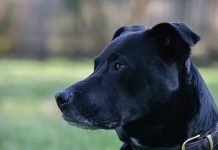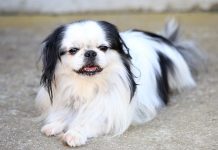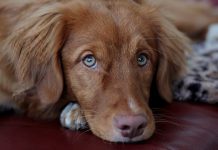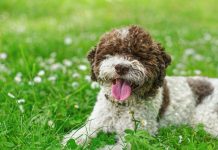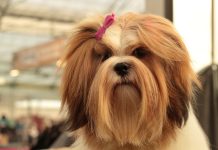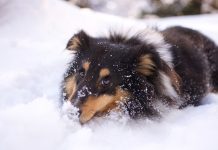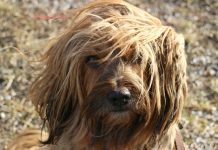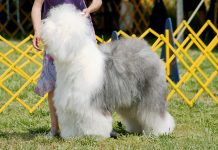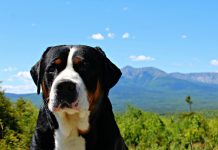History and Origins of the Miniature Pinscher:

- Ancient Roots: The Miniature Pinscher is believed to have originated in Germany, where it was developed from smaller German Pinscher-type dogs. Its ancestors can be traced back to ancient breeds used for hunting rodents and small game.
- Ratters and Companions: Initially bred as efficient rat catchers on German farms and stables, Miniature Pinschers also served as companion dogs due to their affectionate nature and spirited personality.
- Distinctive Appearance: The Miniature Pinscher’s sleek build, sharp features, and fearless demeanor make it stand out among small breeds. Despite its small size, the Min Pin is known for its confident and lively attitude.
- Breed Standard: The Miniature Pinscher was recognized as a distinct breed in the late 19th century in Germany. It was originally known as the “Reh Pinscher” or “Zwergpinscher,” reflecting its resemblance to a miniature deer (Reh) and its small size (Zwerg).
Physical Characteristics and Appearance of Miniature Pinschers:
- Size: Miniature Pinschers are small dogs with a sturdy and compact build. They typically stand between 10 to 12.5 inches (25 to 32 cm) at the shoulder and weigh between 8 to 11 pounds (4 to 5 kg).
- Elegant Profile: The Min Pin has a distinctive silhouette with a proud head carriage, arched neck, and well-muscled body. Despite their small size, they exude confidence and athleticism.
- Coat and Color: Miniature Pinschers have a short, smooth coat that lies close to the body. The breed’s most common coat color is red, but they also come in black and tan, chocolate and tan, or solid red.
- Eyes and Ears: Miniature Pinschers have bright, alert eyes that are typically dark in color. Their ears are erect and set high on the head, giving them an attentive and curious expression.
- Tail: The Min Pin’s tail is typically docked to a short length, though some countries have banned tail docking. In countries where docking is prohibited, Min Pins have a natural, high-set tail.
- Gait: Miniature Pinschers move with a lively and energetic gait, covering ground efficiently with their small, nimble bodies.
- Expression: The breed’s expression is alert, intelligent, and spirited, reflecting their curious and confident personality.
Temperament and Behavior of Miniature Pinschers:
- Fearless and Spirited: Despite their small stature, Miniature Pinschers are bold and fearless dogs. They have a lively, energetic personality and are always ready for action.
- Intelligent and Curious: Min Pins are intelligent dogs with a curious nature. They enjoy mental stimulation and are quick learners, excelling in obedience training and canine sports.
- Affectionate and Loyal: Miniature Pinschers form strong bonds with their families and are loyal companions. They thrive on attention and affection from their human companions.
- Good Watchdogs: Min Pins are naturally alert and vocal, making them excellent watchdogs. They will alert their owners to the presence of strangers or unusual sounds.
- Energetic: Despite their small size, Miniature Pinschers have moderate to high energy levels. They require regular exercise and interactive play to keep them mentally and physically stimulated.
Overall, the Miniature Pinscher is a charming and spirited breed with a rich history as a companion and working dog. Their unique appearance, combined with their lively personality and affectionate nature, makes them a popular choice for dog lovers seeking a small but energetic companion.
Miniature Pinscher Temperament and Personality Traits:
- Fearless and Confident: Miniature Pinschers are bold, courageous, and confident dogs. Despite their small size, they exhibit a “big dog” attitude and are not easily intimidated.
- Energetic and Playful: Min Pins have a high energy level and enjoy engaging in play and activities. They have a playful demeanor and can be quite entertaining with their antics.
- Alert and Watchful: Miniature Pinschers are naturally alert and make excellent watchdogs. They are quick to alert their owners to any perceived threats or intruders.
- Curious and Intelligent: Min Pins are curious by nature and like to explore their surroundings. They are intelligent dogs and enjoy mental stimulation, such as puzzle toys and interactive games.
- Affectionate and Loyal: Despite their independent streak, Miniature Pinschers are affectionate towards their families. They form strong bonds with their owners and enjoy spending time with them.
- Strong-Willed and Independent: Min Pins are known for their strong will and independent nature. They can be stubborn at times, requiring patient and consistent training.
- Social: With proper socialization, Miniature Pinschers can be friendly and sociable with people and other dogs. Early socialization is important to prevent shyness or aggression towards strangers.
- Vocal: Miniature Pinschers are known for their tendency to bark. They use their voice to communicate, alert, or express excitement.
Training and Socialization Needs for Miniature Pinschers:
- Early Socialization: Start socializing your Miniature Pinscher puppy early by exposing them to various people, animals, and environments. This helps prevent fearfulness or aggression towards unfamiliar stimuli.
- Positive Reinforcement Training: Use positive reinforcement techniques such as treats, praise, and rewards to motivate and reward desired behaviors. Min Pins respond well to positive and consistent training methods.
- Basic Obedience Training: Teach your Miniature Pinscher basic commands such as sit, stay, come, and heel. Keep training sessions short, engaging, and consistent to hold their attention.
- Channel Energy: Provide plenty of physical exercise and mental stimulation to prevent boredom and destructive behaviors. Daily walks, play sessions, and interactive toys are beneficial.
- Patience and Consistency: Miniature Pinschers can be stubborn and willful, requiring patient and consistent training. Avoid harsh methods or punishment, as this can lead to resistance.
- Leash Training: Due to their curious nature, Min Pins should be trained to walk on a leash from an early age. Use positive reinforcement to encourage loose leash walking.
- House Training: Establish a consistent house training routine and use crate training if needed. Min Pins are intelligent and can be house trained relatively quickly with positive reinforcement.
- Socialize with Other Dogs: Introduce your Miniature Pinscher to other dogs in a controlled and positive manner. Early socialization helps prevent aggression or fear towards other dogs.
By meeting their training and socialization needs, you can help your Miniature Pinscher become a well-mannered, confident, and well-adjusted companion. Consistent training, positive reinforcement, and plenty of love and attention are key to raising a happy and obedient Min Pin.
Health Considerations and Common Issues in Miniature Pinschers:
- Patellar Luxation: This is a common orthopedic condition in Miniature Pinschers where the kneecap (patella) can dislocate from its normal position. Symptoms include limping or skipping on the affected leg.
- Legg-Calvé-Perthes Disease: This is a condition where the blood supply to the femoral head (ball of the hip joint) is disrupted, leading to degeneration of the hip joint. It can cause pain and lameness.
- Progressive Retinal Atrophy (PRA): PRA is an inherited condition that causes degeneration of the retina, leading to progressive vision loss and eventual blindness.
- Hip Dysplasia: Although less common in Miniature Pinschers compared to larger breeds, hip dysplasia can occur. It is a developmental condition where the hip joint doesn’t fit properly, leading to arthritis and mobility issues.
- Heart Conditions: Miniature Pinschers may be prone to heart murmurs or other cardiac issues. Regular veterinary check-ups are important to monitor heart health.
- Hypothyroidism: Some Miniature Pinschers may develop hypothyroidism, a condition where the thyroid gland doesn’t produce enough hormones. Symptoms include weight gain, lethargy, and skin problems.
- Cushing’s Disease: This endocrine disorder occurs when the adrenal glands produce too much cortisol. Symptoms include increased thirst, urination, and appetite, along with a pot-bellied appearance.
- Obesity: Miniature Pinschers have a tendency to gain weight if their diet is not properly managed. Obesity can lead to various health problems and should be avoided through proper diet and exercise.
Living with a Miniature Pinscher: Suitable Environments and Lifestyle Considerations:
- Indoor Living: Miniature Pinschers thrive in indoor environments and should live inside with their families. They enjoy being close to their human companions and are not suited for outdoor living.
- Regular Exercise: Despite their small size, Min Pins have moderate energy levels and require daily exercise. Regular walks, play sessions, and interactive games help keep them physically and mentally stimulated.
- Secure Environment: Miniature Pinschers are curious and agile dogs that may try to escape through small openings. Ensure your home and yard are secure to prevent escapes.
- Supervision with Small Animals: Due to their strong prey drive, Miniature Pinschers may chase small animals. They should be supervised around smaller pets to prevent any accidents.
- Temperature Sensitivity: Min Pins have short coats and may be sensitive to extreme temperatures. Provide them with appropriate clothing in cold weather and avoid prolonged exposure to heat.
- Social Interaction: Miniature Pinschers are social dogs and enjoy spending time with their families. They may develop separation anxiety if left alone for long periods, so avoid extended periods of solitude.
- Regular Veterinary Care: Schedule regular veterinary check-ups, vaccinations, and preventive care for your Miniature Pinscher. Early detection and treatment of health issues can help prolong their lifespan and quality of life.
- Nutrition and Diet: Feed your Miniature Pinscher a balanced and high-quality diet appropriate for their age, activity level, and health needs. Avoid overfeeding to prevent obesity.
By providing a loving and attentive environment, regular veterinary care, appropriate exercise, and a balanced diet, you can ensure a happy and healthy life for your Miniature Pinscher. Paying attention to their unique health considerations and lifestyle needs will help you be a responsible and caring owner to this lively and spirited breed.
Miniature Pinscher Variations and Breeding Practices

The Miniature Pinscher is a distinct breed with recognized standards for size, appearance, and temperament. While there are no formal variations of the Miniature Pinscher breed like those found in some other breeds, such as different coat colors or sizes, reputable breeders adhere to specific breeding practices to maintain the breed’s integrity and health. Here are some insights into Miniature Pinscher breeding practices:
Breeding Practices for Miniature Pinschers:
- Breed Standard Adherence: Responsible breeders follow the breed standard set by kennel clubs like the American Kennel Club (AKC) or the Fédération Cynologique Internationale (FCI). This standard specifies the desired characteristics of Miniature Pinschers, including size, appearance, coat color, temperament, and overall conformation.
- Health Testing: Ethical breeders prioritize the health and well-being of their Miniature Pinschers. They conduct health screenings for common breed-specific issues such as patellar luxation, Legg-Calvé-Perthes disease, and progressive retinal atrophy (PRA) before breeding. Only dogs that pass health tests should be considered for breeding.
- Selection of Breeding Stock: Reputable breeders carefully select breeding stock based on conformation, temperament, health, and genetic background. They aim to produce puppies that conform to the breed standard and exhibit desirable traits.
- Avoidance of Close Inbreeding: Responsible breeders avoid close inbreeding (breeding closely related dogs) to minimize the risk of passing on genetic disorders or hereditary health issues to offspring. They strive to maintain genetic diversity within the Miniature Pinscher gene pool.
- Ethical Practices: Ethical breeders prioritize the welfare of their dogs and puppies. They provide proper care, socialization, and early training to ensure well-adjusted and healthy puppies.
- Registration and Pedigree: Puppies bred by reputable breeders are typically registered with kennel clubs and come with a pedigree that documents their lineage. This ensures traceability of the dog’s ancestry and breeding history.
- Breeding for Temperament: Miniature Pinschers are known for their lively and confident temperament. Responsible breeders select breeding pairs that exhibit stable and desirable temperaments to produce puppies with predictable behavior traits.
- Education and Support: Ethical breeders educate potential puppy buyers about Miniature Pinscher care, temperament, and specific breed traits. They offer ongoing support and guidance to puppy owners to ensure a successful transition and lifelong care.
Finding a Reputable Miniature Pinscher Breeder:
When looking for a Miniature Pinscher puppy, it’s important to research and choose a reputable breeder who follows ethical breeding practices. Here are some tips for finding a responsible Miniature Pinscher breeder:
- Referrals: Seek recommendations from local Miniature Pinscher clubs, veterinarians, or trusted dog owners.
- Research: Use online resources to research breeders and read reviews or testimonials.
- Visit in Person: Arrange to visit the breeder’s facility to meet the dogs and observe their living conditions.
- Ask Questions: Inquire about health testing, breeding practices, and the breeder’s commitment to the breed.
- Contracts: Obtain a written contract that outlines health guarantees, spaying/neutering requirements, and responsibilities of both the buyer and seller.
By working with a responsible breeder who prioritizes the health, temperament, and well-being of their Miniature Pinschers, you can ensure that you are welcoming a healthy and well-adjusted puppy into your family.
50 Best Names with Meanings for Miniature Pinschers
Naming your Miniature Pinscher is a fun way to showcase their personality and charm. Here are 50 great names with meanings that could be perfect for your lively and spirited Min Pin:
Male Miniature Pinscher Names:
- Rocco – Means “rest,” perfect for a laid-back and relaxed Min Pin.
- Max – Short for Maximus, meaning “greatest,” ideal for a confident and assertive dog.
- Oscar – Means “champion,” suitable for a proud and spirited Min Pin.
- Felix – Means “happy” or “lucky,” ideal for a cheerful and playful dog.
- Jasper – Means “treasurer,” suitable for a precious and beloved companion.
- Cody – Means “helper,” perfect for a loyal and supportive Min Pin.
- Zeus – Named after the king of the gods in Greek mythology, symbolizing strength and power.
- Baxter – Means “baker,” ideal for a food-loving and friendly dog.
- Leo – Short for Leonardo, meaning “lion,” suitable for a bold and fearless Min Pin.
- Rocky – Represents strength and resilience, perfect for a tough little dog.
Female Miniature Pinscher Names:
- Stella – Means “star,” ideal for a bright and shining personality.
- Luna – Means “moon,” suitable for a calm and mysterious dog.
- Bella – Means “beautiful,” perfect for an elegant and charming Min Pin.
- Mila – Means “dear” or “gracious,” ideal for a sweet and affectionate dog.
- Coco – Represents sweetness and playfulness.
- Gigi – Short for Gigetta, meaning “earth worker,” suitable for a hardworking and determined Min Pin.
- Zara – Means “princess” or “flower,” ideal for a graceful and regal dog.
- Sophie – Means “wisdom,” perfect for an intelligent and clever Min Pin.
- Ruby – Represents vitality and energy, suitable for a lively and spirited dog.
- Chloe – Means “blooming” or “fertility,” ideal for a playful and joyful companion.
Unique Miniature Pinscher Names:
- Pixel – Represents modern technology and energy.
- Echo – Symbolizes sound and communication, suitable for a vocal dog.
- Dexter – Means “right-handed” or “skillful,” ideal for an agile and clever Min Pin.
- Nova – Means “new,” perfect for a young and vibrant dog.
- Tango – Represents passion and movement, suitable for an energetic and lively companion.
- Maverick – Represents independence and boldness.
- Juno – Named after the Roman goddess of marriage, symbolizing loyalty and devotion.
- Cosmo – Means “order” or “decoration,” suitable for a well-groomed and stylish Min Pin.
- Sable – Represents the coat color and elegance.
- Blaze – Represents speed and agility, perfect for an active and athletic dog.
Strong Miniature Pinscher Names:
- Titan – Represents immense size and strength.
- Bravo – Used to express admiration or approval, suitable for a confident and courageous dog.
- Ares – Named after the Greek god of war, symbolizing bravery and valor.
- Ranger – Represents the outdoors and adventure, ideal for an active and outdoorsy Min Pin.
- Axel – Means “father of peace,” suitable for a calm and composed dog.
- Viper – Represents agility and speed, perfect for a quick and nimble companion.
- Blitz – Represents a sudden attack or burst of energy, suitable for an energetic and lively dog.
- Nitro – Represents explosive energy and power.
- Rogue – Represents independence and boldness.
- Tyson – Means “firebrand,” ideal for a fiery and passionate Min Pin.
Elegant Miniature Pinscher Names:
- Aria – Means “air” or “melody,” ideal for a graceful and melodious dog.
- Aurora – Means “dawn,” symbolizing beauty and vitality.
- Ivy – Represents fidelity and endurance.
- Piper – Means “flute player,” suitable for a playful and musical dog.
- Daisy – Represents innocence and purity.
- Jade – Represents beauty and preciousness.
- Lola – Represents femininity and elegance.
- Pearl – Represents beauty and purity.
- Silvie – Means “forest” or “woods,” ideal for an outdoorsy and adventurous Min Pin.
- Willow – Symbolizes grace and flexibility.
Choose a name that resonates with you and reflects your Miniature Pinscher’s unique personality, appearance, and charm. Whether you prefer traditional names, strong and powerful names, or elegant and graceful names, these options should inspire you to find the perfect name for your beloved Min Pin!

In conclusion, this guide has provided a comprehensive overview of Miniature Pinscher dogs, highlighting their unique breed characteristics and essential care considerations. Throughout our exploration, we’ve delved into the history, distinctive traits, and important aspects of owning a Miniature Pinscher.
Miniature Pinschers are known for their lively and spirited nature, coupled with their small but sturdy build. They are energetic companions that require regular exercise, mental stimulation, and socialization to thrive in a domestic setting.
As you embark on your journey with a Miniature Pinscher, it’s important to provide them with positive reinforcement training, consistent leadership, and proper socialization from an early age. They are intelligent dogs that respond well to training and enjoy participating in various activities.
With patience and dedication, Miniature Pinschers can make wonderful companions for individuals and families who appreciate their feisty personality and affectionate nature. Remember to consult with veterinarians and experienced dog trainers for specific guidance tailored to your Miniature Pinscher’s individual needs. By understanding and meeting their needs, you’ll create lasting memories and enjoy a fulfilling companionship with this spirited and lovable breed.






